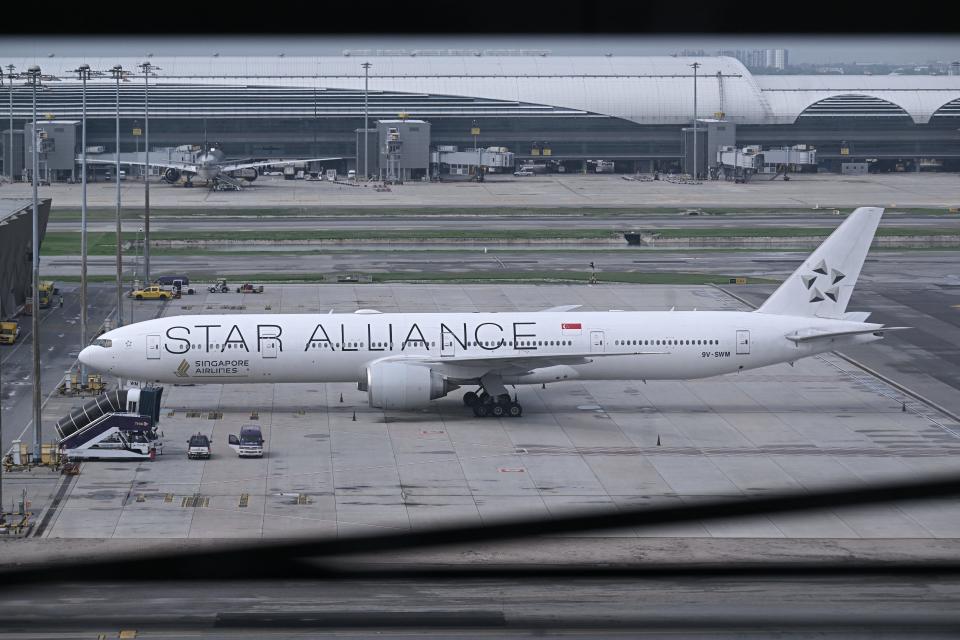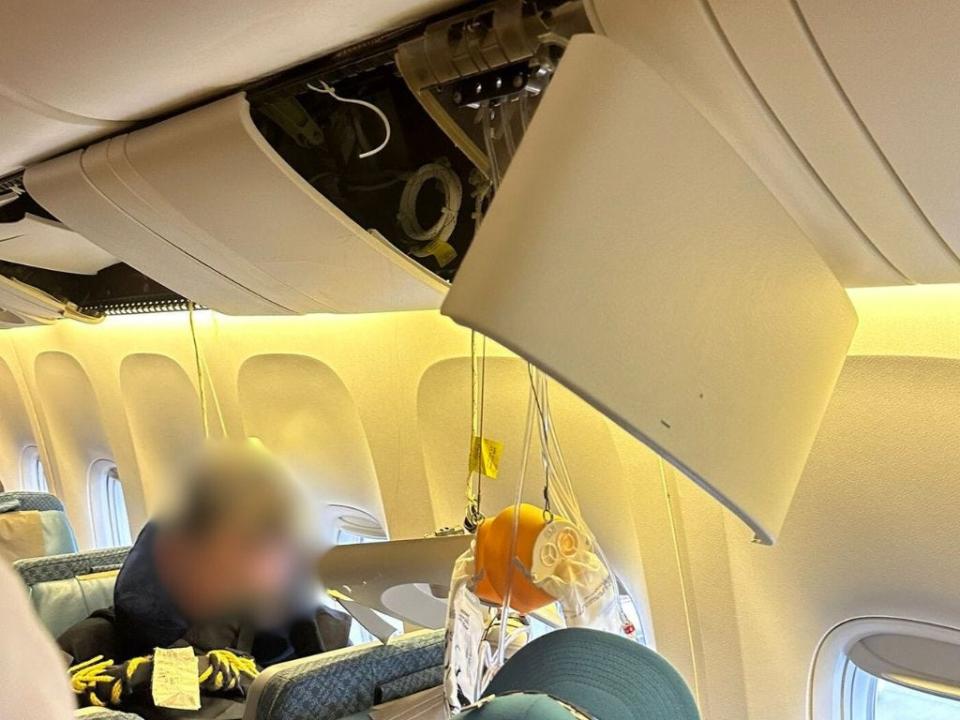-
Ade Tan and Amos Chan were among the passengers aboard Singapore Airlines flight SQ321 on May 21.
-
Their flight was hit by severe turbulence while flying over Myanmar, and later diverted to Bangkok.
-
Tan and Chan, both doctors, described the horrors in mid-air — and what they did to help.
When they felt their plane lurch and plummet, Ade Tan and Amos Chan, both 28, barely had time to react.
“The last thing I saw was Amos trying to put on his seatbelt, and the next thing I registered was that he was no longer in his seat,” Tan told BI.
“I must have been thrown off because when I next opened my eyes, I was actually on the aisle,” Chan said. “I had slammed into another passenger two rows behind us.”
The Singaporean couple had spent the past month honeymooning in Italy and Iceland. On May 20, they boarded their flight home from London.
“We came back because Amos’ grandfather was celebrating his 100th birthday. We were planning to continue our honeymoon after that, so we were coming back just for a day,” Tan said.
Tan and her husband were among the 211 passengers and 18 crew members aboard Singapore Airlines (SIA) flight SQ321, which ran into severe turbulence en route to Changi Airport.

SQ321 had been flying for around 10 hours when it was hit by severe turbulence while traveling over the south of Myanmar on May 21, per Singapore’s Transport Safety Investigation Bureau.
The Boeing 777-300ER airplane was cruising at an altitude of 37,000 feet when it was thrust up and down rapidly for 62 seconds. Officials said the turbulence was so severe that the plane dropped 178 feet in four seconds. The plane was forced to divert to Bangkok because of the incident.
“There were a lot of oxygen masks dropped from above where people had crashed into the ceilings. Many were injured, people had blood on their heads, and some were lying in the aisle as well,” she added.


Rushing to help passengers
Dozens of passengers were injured in the incident, with some suffering from brain and spinal cord injuries. One passenger, a 73-year-old British man named Geoffrey Kitchen, died of a suspected heart attack. Kitchen had a pre-existing heart condition.
Being trained medical doctors, Tan and Chan went around the cabin to tend to injured passengers.
“We could hear people calling out for medical help. I went more toward the front of the plane while Amos went to the back,” Tan said.
That was when she noticed Kitchen had collapsed. Besides Tan, two other doctors and a nurse were tending to him.
“I remember shouting to the rest of the cabin, asking if anyone else is CPR trained,” she said, adding that two men came forward to help with CPR.
Tan said the group spent about 20 to 30 minutes trying to resuscitate Kitchen, but their attempts weren’t successful.
Sustaining injuries themselves
Tan told BI that she began to feel the pain in her neck worsen after the plane landed in Bangkok.
“I think when I first smashed up into the ceiling, the pain didn’t register to me,” Tan said.
Back home in Singapore, both Tan and Chan underwent CT scans on their brain and neck.
“Amos’ one was completely clean, but because he had blacked out, he needed to be admitted for monitoring,” Tan said.
Tan was later diagnosed with a cervical spine fracture.
“I stayed in the hospital for about a week mainly because it was quite difficult to mobilize myself with the fracture,” she said, adding that she will have to wear a cervical collar for the next few weeks.
Tan and Chan said the incident hasn’t made them afraid of flying. Tan, for one, commended SIA and the Bangkok medical and airport teams for their response to the crisis.
On Friday, SIA announced that 34 passengers are still in Bangkok, with 23 receiving medical treatment in the hospital. The airline said in an earlier statement on May 27 that all crew members had returned to Singapore.
When approached for comment, a representative for SIA pointed BI to a May 29 Facebook post, which the airline published after Singapore’s Transport Safety Investigation Bureau released their preliminary investigation findings on Wednesday.
“The safety and well-being of our passengers and staff are our top priorities,” SIA said in that post.
“We are committed to supporting our passengers and crew members who were on board SQ321 on that day, as well as their families and loved ones. This includes covering their medical and hospital expenses, as well as any additional assistance they may need,” the airline added.
Read the original article on Business Insider
Source Agencies



